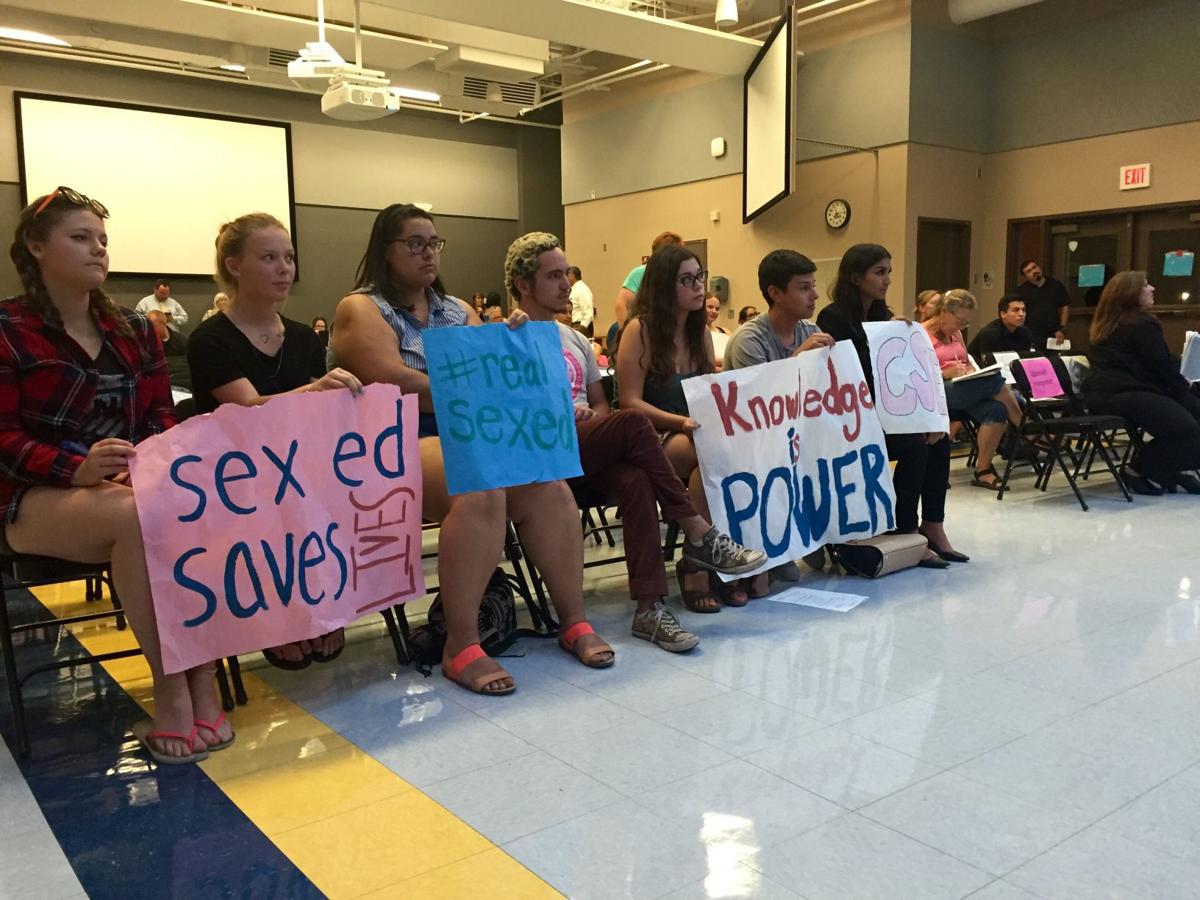TUSD has modified its policy on sex education and is working on a new curriculum that won't leave students Googling for more answers.
Here's what you need to know:
1. The new curriculum will be more comprehensive.
It will provide medically accurate, age-appropriate information on anatomy, reproduction and related biology. While abstinence will continue to be encouraged, as required by Arizona law, it will not be the sole emphasis.
The new sex education curriculum will address contraceptives as a way to reduce unintended pregnancy and sexually transmitted infections, including HIV.
It will also cover topics like bullying, dating violence and consent.
Students like University High School junior Deja Foxx say comprehensive sex education is needed, especially in Tucson’s largest school district.
Comprehensive sex ed “is vital to students in our district because we come from such varied backgrounds,” Foxx says. adding that it is TUSD’s responsibility to educate students equally. “The lack of a comprehensive sexual education in our district is disproportionately affecting undocumented students, students of color, poor students, students living on their own, LGBTQ students and women and girls on our campuses.
“I believe every student, regardless of these characteristics, should be provided the same opportunity to achieve higher education. This policy demonstrates our district standing in solidarity with its students.”
2. Some parents and students disagree with the new policy.
Just before it was unanimously approved, some parents and students asked the TUSD Governing Board to remove the policy from the agenda, saying feedback was needed from other segments of the Tucson population and arguing that it is parents' job to educate their children on personal matters like sex.
Mayra Duron, a mother of five children who attend TUSD schools, acknowledges that sex education classes only scratch the surface of what young people need to know, but she says that is where parents step in.
“I am standing here opposing the comprehensive sex education curriculum,” she said. “I have a 13-year-old son and I love keeping the door open when it comes to such an intimate notion. I, too, was a teen mother and I did attend sex education classes. They really just served as a disclaimer. … I believe teachers can actually encourage students who do have questions to turn around and say, ‘This is a matter that you need to speak with your parents about.’”
Jeff Vanderford, a pastor at Authentic Life Church, reminded the Governing Board that parents could choose to enroll their children elsewhere if they are uncomfortable and asked that they not be forced to choose between their faith, their beliefs and their school district.
3. Arizona law will keep LGBTQ students out of curriculum discussions.
State law prohibits school districts from including instruction that "promotes a homosexual lifestyle, portrays homosexuality as a positive alternative lifestyle, or suggests that some methods of sex are safe methods of homosexual sex."
A draft version of the new district policy initially included wording that said sex education should be inclusive of lesbian, gay, bisexual, transgender and queer students. But it had to be taken out because of the law, which board clerk Kristel Foster called “a shame” and a “sad statement.”
Alex Ross, a 20-year-old University of Arizona junior who worked with past and present TUSD students to get the Governing Board to take up this cause, says he was fortunate to have received a comprehensive sex education in New York, but feels the attitude toward LGBTQ students is frightening.
“As a queer man myself, I felt very outcast by it, he says. “I got to thinking about other students who are in high school, taking these courses, and their identities are actively silenced and reduced.”
So what's the answer?
“It’s just one of those things that we have to keep hitting hard,” Ross says. “It’s not something we can be quiet about.”
4. Parents will have the last say.
When the time comes to put the curriculum together, TUSD will seek input from parents, students, teachers, physicians, faith-based organizations and others and plans to have the final product vetted by the Arizona Department of Education.
Once it's finished, parents will have to give permission for their kids to be exposed to it.





